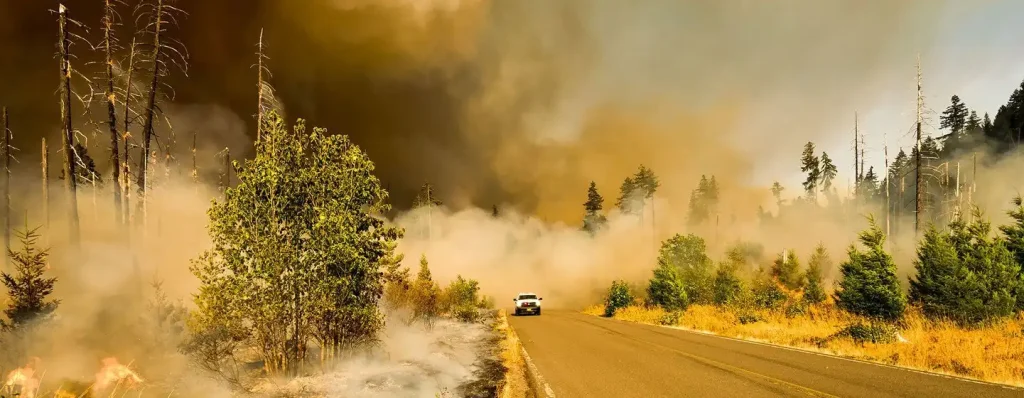The Intergovernmental Panel on Climate Change (IPCC) released its 3,600-page Sixth Assessment Report (AR6) Working Group II contribution on February 28, 2022, highlighting that nearly 3.6 billion people—half the global population—are now exposed to severe climate impacts.
The report, endorsed by 195 nations, details escalating threats from rising temperatures, including species extinction, ecosystem collapse, insect-borne diseases, deadly heatwaves, megastorms, water shortages, and reduced crop yields.
UN Secretary-General António Guterres called it a “damning indictment” of global leadership’s failure, labeling their inaction “criminal” as greenhouse gas emissions continue to drive climate change.
A Cascade of Catastrophes
The report notes that the past year alone saw unprecedented floods in China, heatwaves in Europe, and wildfires across Australia and North America, with 2021 global temperatures 1.1°C above pre-industrial levels. Even if emissions are curbed, impacts will worsen, with 1.5°C warming—potentially reached by the early 2030s—triggering tipping points like Greenland and Antarctic ice sheet melting, which could raise sea levels by 13 meters, or the Amazon rainforest’s transformation into savannah.
The IPCC warns that time is “very nearly run out” for a “livable future,” with 127 risks identified, including coastal flooding affecting 1 billion people by 2050 under high-emission scenarios.
Guterres’ Call to Action
Guterres urged G20 nations, responsible for 80% of global emissions, to end coal use domestically, following commitments like France’s pledge to halt global fossil fuel financing by 2022. He put oil and gas giants “on notice,” stating, “Coal and other fossil fuels are choking humanity.” Emphasizing urgency, he added,
“Now is the time to turn rage into action. Every fraction of a degree matters. Every voice can make a difference. And every second counts.” The COP26 summit in November 2021, which aimed for net-zero by 2050, was deemed “not enough” by the UN, with current pledges projecting 2.4°C warming by 2100.
Regional and Global Context
The report’s release coincided with global crises, including Russia’s invasion of Ukraine, which disrupted energy markets, and the ongoing Covid-19 pandemic, with over 400 million cases. In Africa, where climate impacts exacerbate food insecurity—hitting 97 million people in 2021 per the World Food Programme—countries like Ghana, with vaccination mandates for football fans, faced compounded challenges.
Posts on X in 2022 echoed Guterres’ frustration, with users demanding accountability from fossil fuel companies like ExxonMobil, whose profits hit $17.9 billion in 2021. Switzerland, among the top 10 fastest-warming countries, faced similar pressures, with melting Alpine glaciers threatening water supplies.
Urgent Adaptation and Mitigation
The IPCC stresses dual action: rapid decarbonization to limit warming and adaptation to protect vulnerable populations. Adaptation costs for Africa alone are estimated at $30-50 billion annually by 2030, yet only 3% of global climate finance reached the continent in 2021.
The report highlights irreversible losses, like coral reef die-offs affecting 500 million people, and calls for protecting 30-50% of ecosystems to preserve biodiversity.
Without immediate action, the IPCC warns, climate impacts could displace 250 million people by 2050, with low-lying nations like the Maldives facing existential threats.






